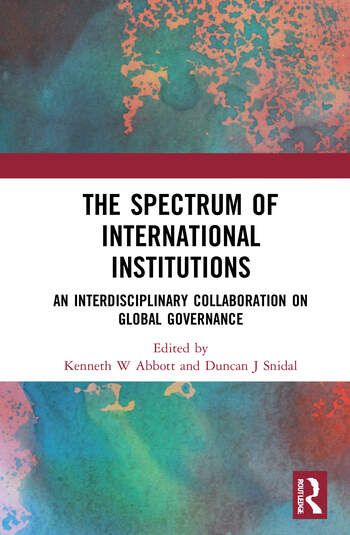
This book collects and integrates Abbott and Snidal’s influential scholarship on indirect global governance, with a new analytical introduction that probes the role of indirect governance techniques in the universe of global governance arrangements.
The volume presents the Governance Triangle, a now widely-used figure that demonstrates and helps to assess the proliferation of private and public-private standard-setting organizations, along with new forms of intergovernmental institutions, over recent decades. It then analyzes how intergovernmental organizations, regulatory bodies, and other "global governors" enlist and work through those organizations as intermediaries, so as to govern more effectively and gain knowledge, influence and legitimacy. It demonstrates Abbott’s and Snidal’s groundbreaking concept of orchestration, a mode of indirect governance in which influential governors catalyze, support, and steer intermediary organizations through wholly voluntary relationships. It also considers their more recent innovations in the theory of indirect governance. These include additional modes of governance, such as co-optation, delegation and trusteeship, as well as the pervasive "Governor’s Dilemma" trade-off between a governor’s control of its intermediaries and the intermediaries’ competence.
This book will appeal to scholars and students in multiple disciplines, including international relations, global governance, law, and regulatory studies.